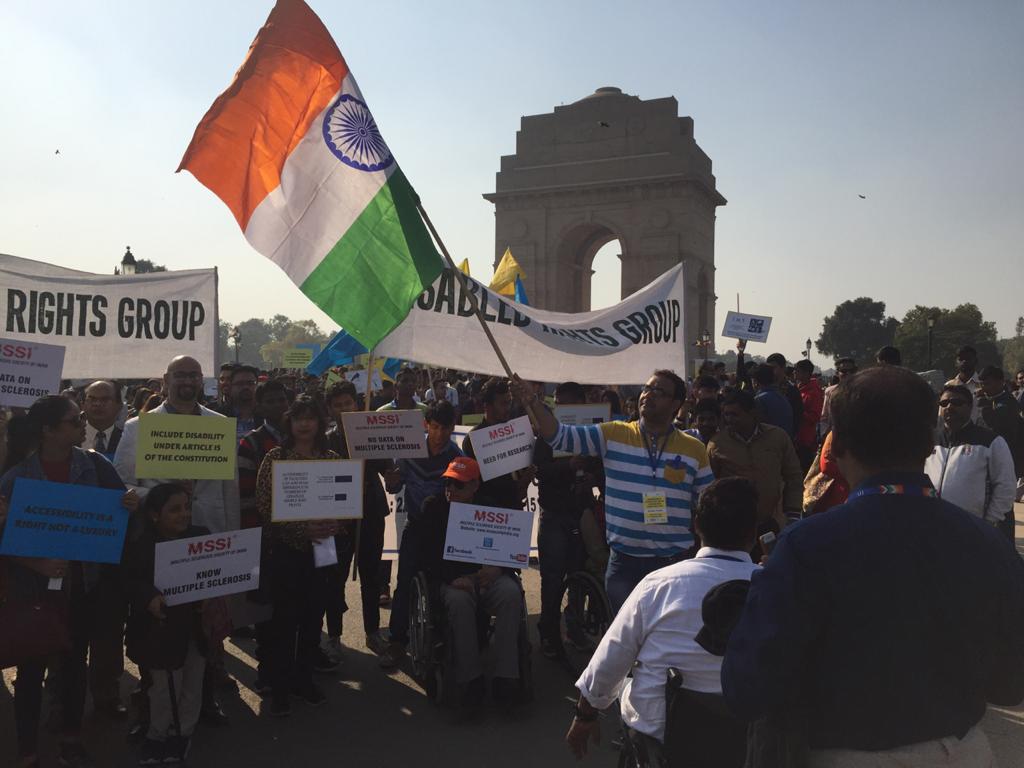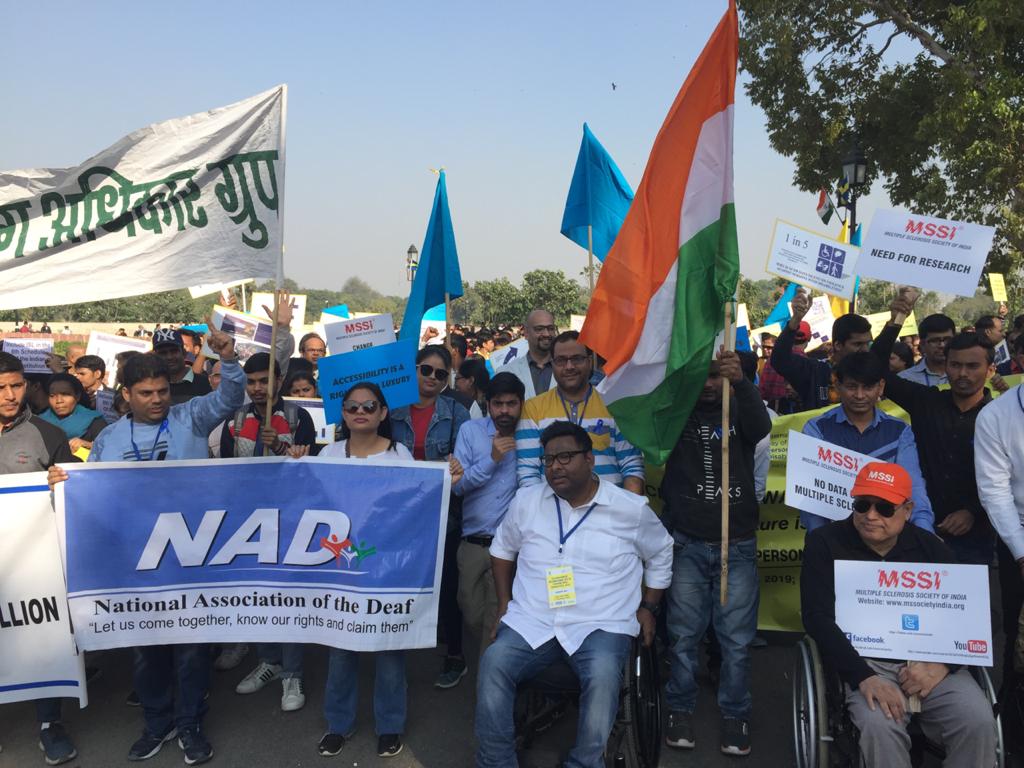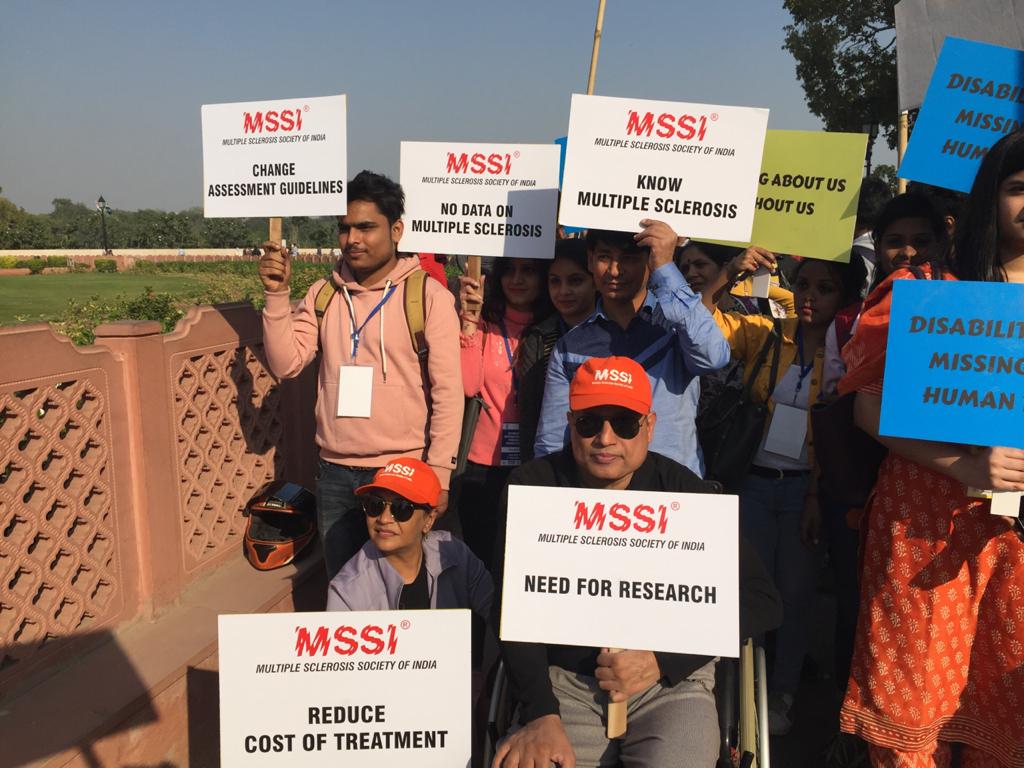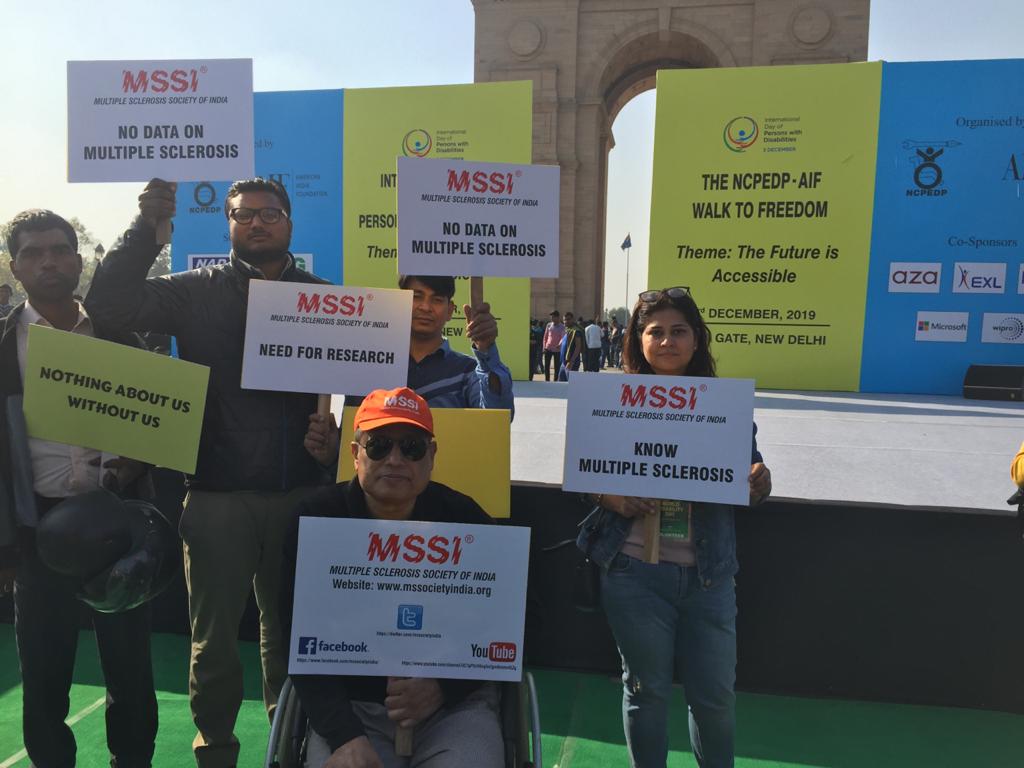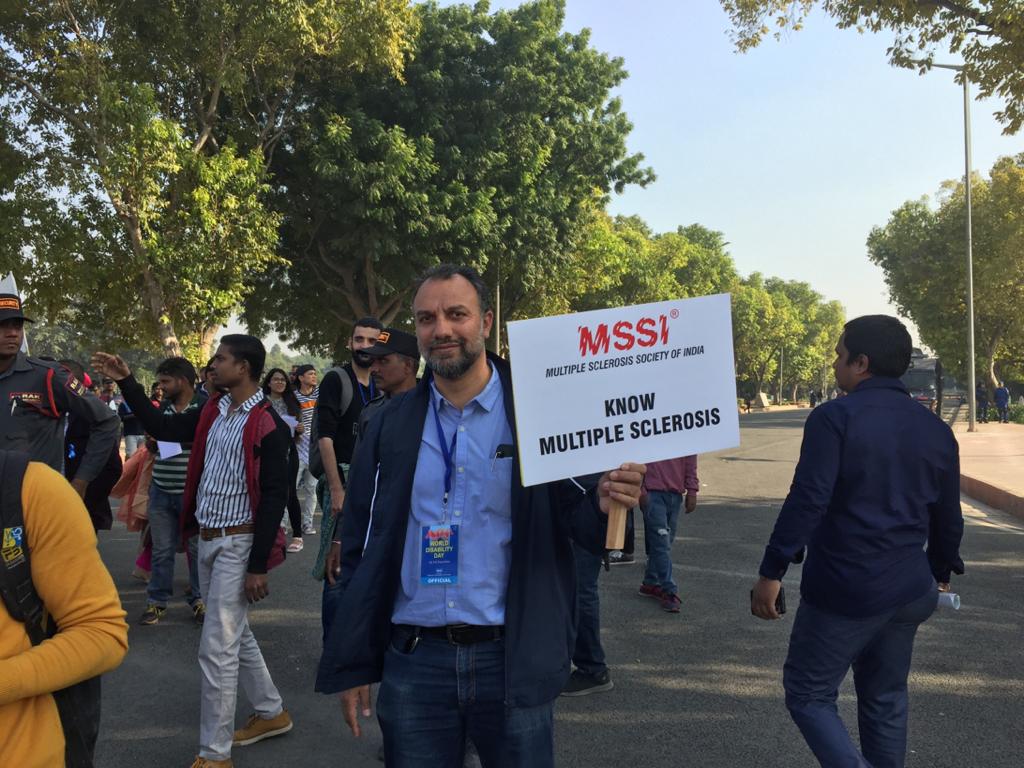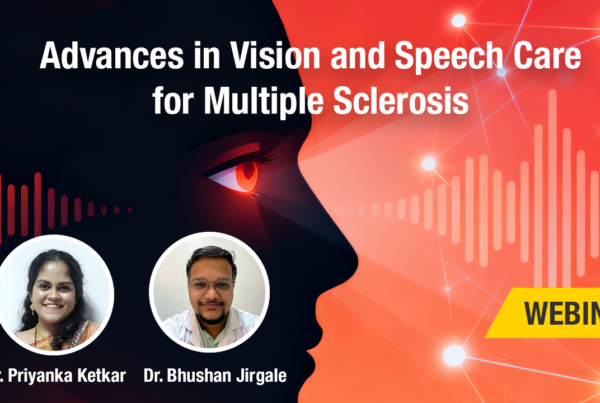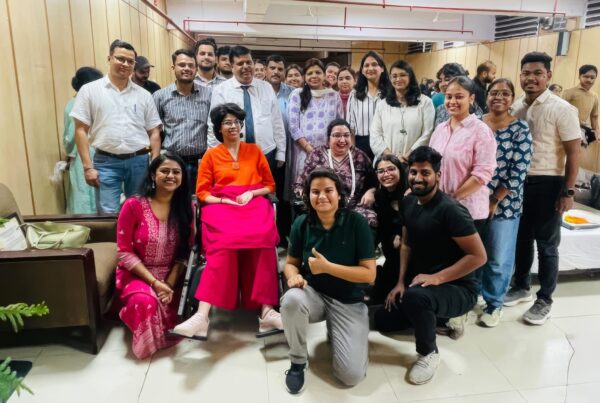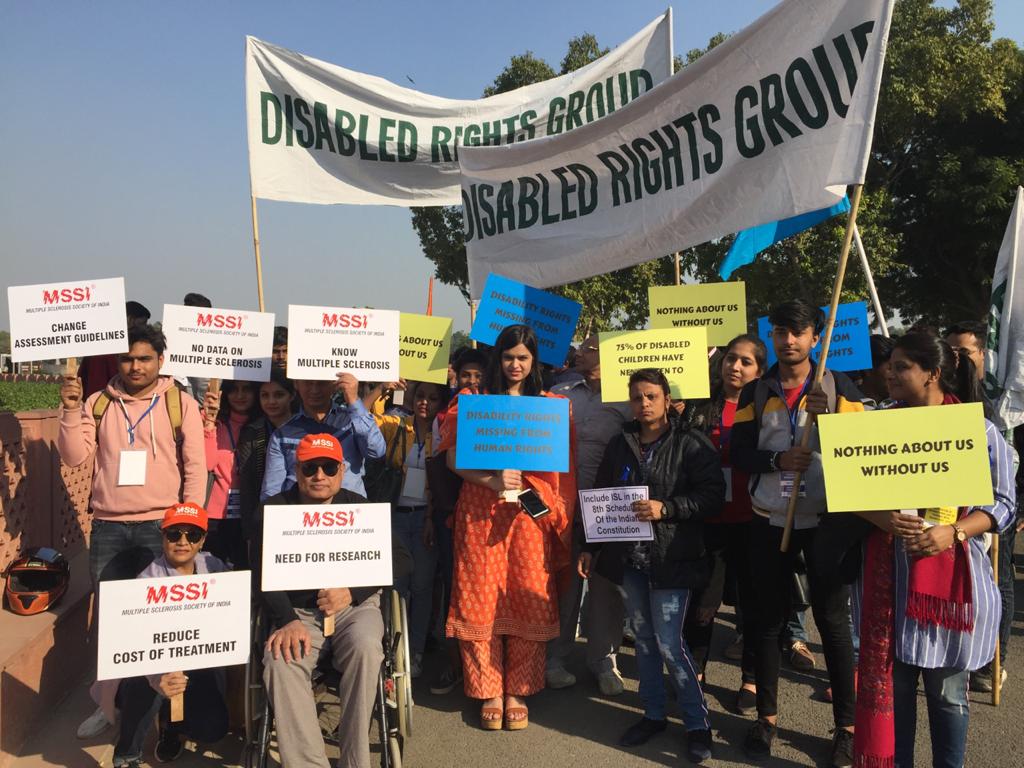
International Day of Persons with Disabilities is an international observance promoted by the United Nations since 1992. It has been observed with varying degrees of success around the planet. The observance of the Day aims to promote an understanding of disability issues and mobilize support for the dignity, rights and well-being of persons with disabilities. It also seeks to increase awareness of gains to be derived from the integration of persons with disabilities in every aspect of life. Each year the day focuses on a different issue. This years theme is, “The Future is Accessible”.
As a part of the national advocacy action plan we had identified the need to address the poor understanding of MS among external stakeholders, disability groups, government, media, and the general public. MSSI members, volunteers and persons with MS along with their caregivers participated in the Symbolic Walk to Freedom that started from the iconic India Gate in the capital city of New Delhi to commemorate the International Day of Persons with Disabilities. This event was organized by NCPEDP and the America India Foundation. Before the walk, MSSI’s India MS Person of the year, 2019 Gp. Capt. Malaker, along with members of other newly recognized disabilities were invited on the dias to release the blue and yellow balloon as a symbol of freedom from the bondage which is social, psychological, societal and individual. There was a gathering of nearly 5000 people and we were able to create a lot of visibility and awareness about Multiple Sclerosis. We gave away pamphlets with information about MS & MSSI. As a way to create awareness, we displayed placards with slogans that convey the need of the hour for Multiple Sclerosis which included Know Multiple Sclerosis, Change assessment guidelines, No Data on Multiple Sclerosis, No research, Reduce cost of Treatment.
Ironically even though the theme is Future is Accessible, that is not the reality on the ground for a person living with MS in India because they are still struggling with inappropriate assessment guidelines, lack of data of prevalence of MS in India, no research on drugs and treatment that might work. All of this leads to lack of access to schemes, social benefits, insurance and employment. We have a lot to do to change that.
Participating at national level events provided impetus to our work in the area of advocating for the rights of persons with MS.


